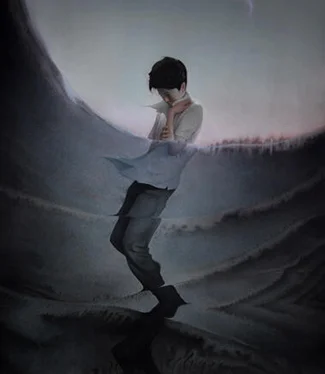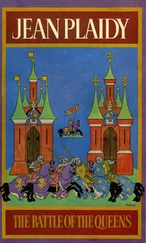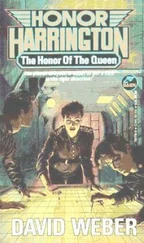The Courtship of the Queen
by Bruce McAllister
When he was a child, he was stranger than many children, but not as strange as some. What he lacked in normalcy he more than made up for in passion, sense of wonder and acquisitiveness—the virtues that make any collector (or hunter) great. By the age of ten he had collected more than two thousand seashells, providing each, as any good scientist would, with its own neatly labeled card that listed its Latin and common names, where it had been collected and when and by whom, and the temperature that day. If he or his parents had purchased the seashell or it had been given to him by someone who did not have such information, that was all right; the card would at least bear its names. What mattered most was the beauty of the bivalve or univalve, the clam or snail, its personality, its character, and its role in the larger scheme of things, which the boy saw clearly.
He kept his seashells in the drawers of two nice oak dressers in his room and, as well, in the drawers of the ten junkier dressers his father had with affection purchased for him at yard sales and Salvation Army outlets and made room for in every garage or basement or attic they had, moving them carefully with their other furniture each time the family relocated from one coast or country to another.
How the boy’s collection had come into being was not as strange as the boy himself, even if the size of it was: his father, a Navy enlisted officer, moved his family often because the Navy ordered him to, and often, because it was the Navy he served, they lived on or near military bases by the sea; and the boy, when he was old enough to crawl, had discovered that the one thing he could truly make his own and take with him from one place to the next was the seashells of that place—whether they lay dead and clean on the sand of nearby beaches, lived on the mud below in shallow water, hid under seaweed at tide pools, were gifts from kind people, or were purchased by the boy, when he or his parents had the money, in local shops.
He could not take the people with him, friends he made at school, or the old women who walked the beaches in palm-frond hats, or the fisherman from the jetties. He could not take the houses his family lived in with him. He could not always even take the pets, which were sometimes lost in the moves and which, like all pets, sometimes died because pets rarely lived as long as their keepers.
He even felt that he could not take himself because what he was at each of his father’s “stations” was different. But he could always—with his parents’ encouragement because they knew he needed to take something with him or he would forget who he was—take the seashells of each place. They understood what moving meant, and they understood what could be lost. His father had fled a small town in Virginia to join the Navy and make a life for himself, and his mother was one-quarter Chickasaw Indian and, though quite educated, knew what it felt like not to know who you were.
Though it seemed odd when it began, his parents encouraged his playing with his seashells, too—the way other boys played with soldiers and toy boats and cars. His wanting to play with them as all children play with something did not, in fact, seem as strange to them as the cards with their scientific names and other information, which felt so adult and made them worry, lost in books as he often was, that he would never be a child. It made him—this playing—seem more normal to them; and so they watched and smiled when their ten-year-old son took the large, pink-lipped Queen Conch ( Strombus gigas ) which a shrimp fisherman in Key West, Florida, had given the boy (one his mother, without complaint, had boiled and cleaned so that it would not smell, as seashells sometimes tended to do), put it for the thousandth time on the rug in his bedroom, placed around it the fifteen tiny but feisty Strombus alatus —Fighting Conchs (shells he had also collected in Florida at his father’s previous station)— and, as he liked to put it, played “Kingdom of the Ancient Sea” with them. After all, the Queen needed protection, he explained, looking up, and the Fighting Conchs, loyal as they were, would protect her. In actuality, Fighting Conchs could drill through the armor of other seashells and kill them, so why not here, in his fantasy, in the boy’s very own kingdom, make them “the Queen’s guards”?
The big, elegant Horse Conch ( Pleuroploca gigantea )—whose knobby shell was covered with a periostracum as dark as his heart—was even then approaching the Queen, whose reign (the boy explained at dinner that night) the Horse Conch wished to overthrow with his own forces, his own battalions of Fighting Conchs and his company of poisonous Cone shells, Conus gloriamaris (two specimens of which his parents had bought for him in Australia when he was six).
Because of the Conus gloriamaris , the Horse Conch would certainly have been able to defeat the Queen, who was much older and vulnerable to flattery from handsome suitors and a little tired from her centuries of reign over the Kingdom of the Ancient Sea, had it not been (the boy explained four nights later) for the ingenuity of the Queen’s Carrier Shells. These shells, disguised by the broken shells and coral they had glued to themselves (as Carrier Shells do) with a calcium paste, were able after only two attempts, and in the darkest of ocean’s night, to penetrate the Horse Conch’s perimeter of Fighting Conchs and by their gifts of persuasion (namely, the promise of more Venus clams than any Cone shell could dream of) turn one of the dreaded Cones against the Horse Conch itself. The Horse Conch, not suspecting treachery in its own ranks, had left its naked body exposed the following night as it slept and, pierced by the Cone’s radula, had succumbed to the poison. The Fighting-Conch guards, upon discovering the horror the next morning, had, fast and nimble as they were, dispatched the traitorous Conus gloriamaris with ease, but the Horse Conch was dead and even the spectacle of a hundred species of the most refined and colorful Murexes in the funereal procession that followed could not restore him to this world.
Upon hearing all of this, the boy’s parents did not know which was stranger—that a ten-year-old boy might daydream such political intrigue or that the actors carrying out its mortal drama might be the very seashells favored by girls, old-fashioned eccentrics or proper European ladies who had combed the beaches of the world for centuries. Their son was a marvel to them and always would be, and one strangeness would simply be replaced by another in his life, they suspected, so what was left except to love him?
As he grew older and played for even longer periods of time with his collection, he sometimes reported at dinnertime the transactions of the Kingdom and sometimes did not. Sometimes, in fact, he would say nothing for a week, even a month, and in one or two instances, even a few months. If he seemed melancholic at times, what children were not? If his hands shook on occasion—from excitement and exertion—and he scratched his arms as if he had been swimming, the salt of the sea irritating his skin—this was normal, was it not?
Once, he had been silent about the Kingdom for six months before, in passing at dinnertime, he finally revealed that the late Horse Conch had been replaced long ago as ruler of the Greater Reefs by his eldest son; and even this was ancient history because the eldest son’s younger brother, a particularly fine specimen of his species, had replaced that brother at his brother’s untimely death of natural causes; and that this younger brother—who had been killed by a Thersite Conch in the employ of a certain Knobbed Triton ( Charonia lampas ) out to expand his own territory with cocksure prematurity—had in turn been replaced by a cousin from the New World, the stately Pleuroploca princeps Horse Conch, whose intentions for the Queen’s territory and usurpation of her rule would soon embroil him in an intrigue that would put the first Horse Conch’s machinations to shame.
Читать дальше












